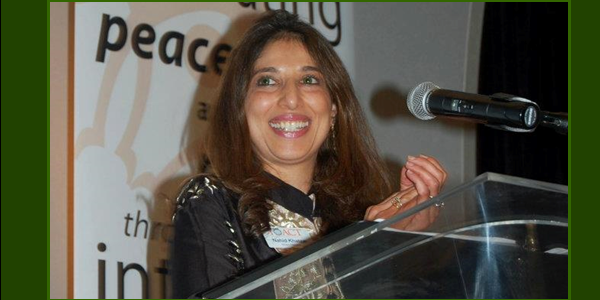
By: Elizabeth McGuire
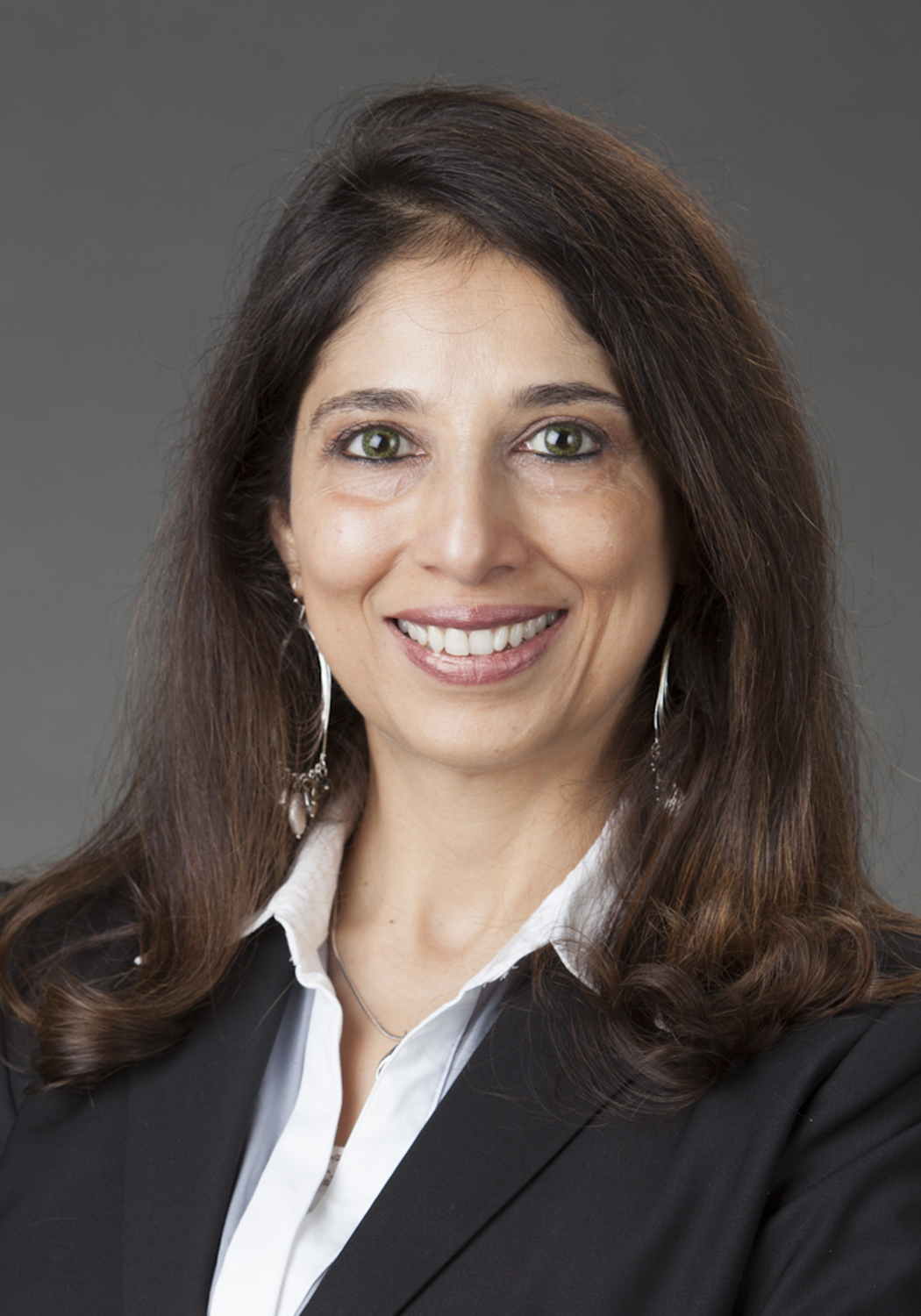 The spotlight is not Nahid Khataw’s natural territory, but the gentle leader made peace with the attention once she found her true calling. Khataw, a Pakistan native who moved to Austin in her early 20s, has become an important voice in the Muslim community and a tireless advocate for interfaith dialogue.
The spotlight is not Nahid Khataw’s natural territory, but the gentle leader made peace with the attention once she found her true calling. Khataw, a Pakistan native who moved to Austin in her early 20s, has become an important voice in the Muslim community and a tireless advocate for interfaith dialogue.
Khataw and her husband, Ali (Leadership Austin Board Chair-Elect) came to Austin in 1989. After raising their two children, Khataw became more involved in the community and eventually started her own business (Accurate CAD & Technical Services, Inc.), but she credits her Leadership Austin experience for helping her find her truest calling.
It is this passion and devotion to building bridges of understanding that has allowed Khataw to turn her personal faith into a community-wide gift.
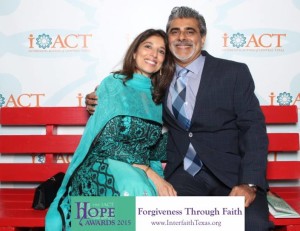 What helped you feel a part of the community when you moved to Austin?
What helped you feel a part of the community when you moved to Austin?
When 9/11 happened, I stood up and condemned what had happened. Ali encouraged me to be interviewed. Interfaith Action of Central Texas (iACT) was a big part of it and arranged the interviews. After the first talk I knew it was part of my mission…to explain to the community that not all Muslims are terrorists and we are normal human beings just like you guys.
My friends and I were invited by 13 plus churches and synagogues to talk to them about Islam. My role was to talk about women in Islam: How powerful they are and how respected they are in Islam. It is not what we see in the media…that women are wearing burkas and supposed to be in their homes. In fact, our prophet Mohammed’s first wife was a businesswoman and used to trade goods from country to country. Today, men and women can work together–it’s completely fine. But this is not the Islam that we see on TV.
These incidents around the world definitely strengthen me and makes me work harder in the community to show the the people in Austin that we are moderate Muslims and are trying to live a life like everyone else. We are working hard and are trying to raise a family.
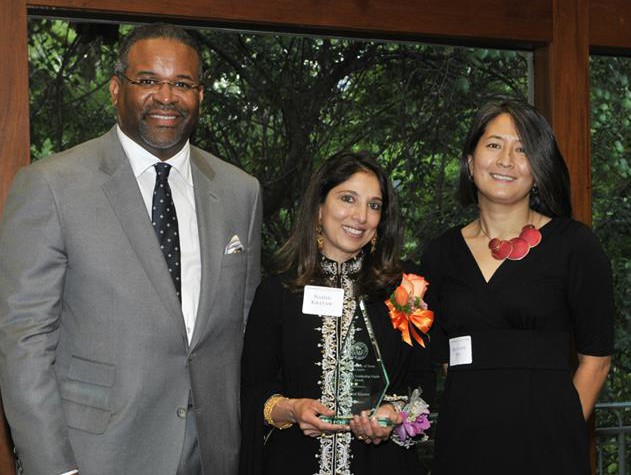 Tell us about the many nonprofits you serve…
Tell us about the many nonprofits you serve…
I’m the chair of the Asian Community & Education Foundation (ACE). I’ve been chair for 5 years. We do free health fairs for the community and have multiple doctors who volunteer their time. We also give scholarships to Asian students and to Leadership Austin.
I am also on the boards of the Asian Family Support Services of Austin, Network of Asian American Organization, and the American Red Cross of Central Texas. I am a past board member (and board president) of iACT and stay involved with them. iACT repairs home for underprivileged in Austin, supports refugees who come to Austin, and has programs to encourage conversations about difficult topics.
What’s the most rewarding part of your work?
I love to see the smile of the people we provide services to. Any kind of community work is always rewarding. My parents are very generous and do a lot for their community. My parents always say,
“Whenever there’s an opportunity to do good, grab it right away because you don’t know if you’re going to have another chance.”
And now I see my children doing the same. My son and daughter (27-year-old Zain and 23-year-old Salva) started their own Facebook Page called Muslims Doing Good. They were seeing the backlash in the media against the Muslim communities and decided it’s time for the youth to show that Muslims can do good also.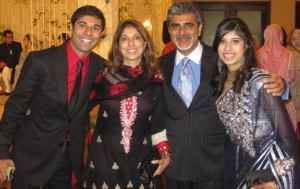
You are a graduate of the Essential Class of 2010. What drew you to Leadership Austin?
Ali is a graduate of 2009, and while he was in class he encouraged me. I kept saying, “No…maybe…I don’t think I have those skills.” And by the grace of God I was selected. And it completely changed me. Completely. I was really a shy person and scared of talking aloud. I think it was the last retreat where everything clicked and I realized interfaith is my passion and what I really want to do.
As a result I got more involved with iACT, and they asked me to be on their board, where I served for 7 years.
What lessons or experiences from LA have stuck with you?
I was so shy when going through the class. We were supposed to write an essay and a few would read them to the class. I did not raise my hand but our leader suggested I read. I was so nervous. My topic was interfaith. And standing up and saying it in front of a crowd…that’s when it really hit me that this is what my passion is. The Leadership Austin program is really well designed because I had no clue when I joined the class what I really wanted to pursue. I think they develop that in a person and really help people find their passions.
What makes a good leader?
Leaders have to decide within themselves what and how they want to help the community. What gives them satisfaction? What is rewarding to them? When I think of helping someone in a way that brings a smile to their face…it really makes me work harder as a leader.
How would you describe your leadership style?
I tell my board members that I can’t be very harsh or raise my voice. I direct in more of a kind, calm way. That’s my style.
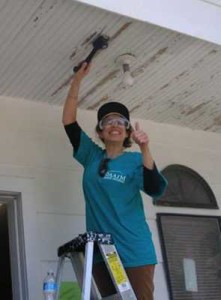 What does Austin needs as a community?
What does Austin needs as a community?
More of a dialogue between communities and different faith groups. In Islam and in the Koran it is said (and I’m paraphrasing) “God has created us in different tribes so that we get to know each other.” And that’s why I think the dialogue is very important. Basically when you see the different faith groups, you know that all of them have the same basis: be a good human being; help your brother and sister; be kind to each other. A dialogue is so important in trying to understand people.
Advice for Austin leaders?
Whenever there is an opportunity to do good, do it. Whatever a person can do to help another person, the helping is the best reward. We have come into this world empty handed and we’re going to leave this world empty handed. The only thing to take with us are our good deeds.
